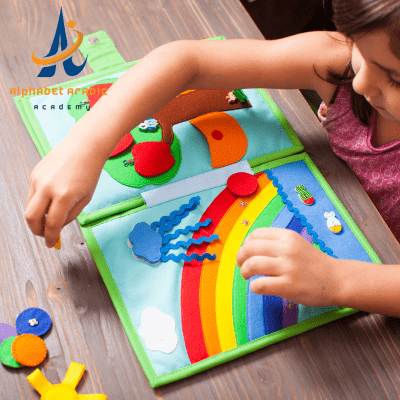Arabic is a beautiful and rich language that opens doors to culture, history, and communication. Many parents want their children to learn Arabic but wonder about The best way to learn Arabic for children. The good news is that learning Arabic can be fun, interactive, and engaging when the right methods and resources are used. In this guide, we will explore the most effective ways for children to learn Arabic and how Alphabet Arabic Academy can help with structured and affordable programs starting at just $40. contact us

Introduction to Arabic for Kids online courses
Importance of Learning Arabic
Arabic is one of the most widely spoken languages, with over 400 million speakers worldwide. Teaching children Arabic at a young age enhances their cognitive abilities, improves their communication skills, and deepens their understanding of Islamic and Arabic cultures. Early exposure to the language helps children develop a natural pronunciation and fluency over time.
The Best Way to Learn Arabic for Children with us
Exploring Effective Methods
The best way for children to learn Arabic is through interactive, engaging, and structured methods. A mix of formal lessons, immersion, storytelling, games, and multimedia creates an enjoyable and effective learning environment. Using a variety of teaching tools ensures that kids remain interested and motivated throughout their language-learning journey.
Interactive Learning Resources , is it free with course ?
Utilizing Games and Apps
Technology has made learning Arabic easier for kids. Many apps and online programs, such as Duolingo, AlifBee, and Noor Academy, use fun games, colorful visuals, and interactive exercises to teach Arabic letters, vocabulary, and pronunciation. These tools help children read, write, and speak Arabic in an engaging way.
Immersive Arabic Experiences via native tutors
Engaging Through Storytelling
Children learn best through stories. Storytelling is a powerful method that helps kids understand vocabulary, sentence structure, and cultural contexts. Reading Arabic books, listening to short stories, and watching educational cartoons can make learning Arabic more natural and enjoyable.
Professional Tutors and Classes native egyptian speakers
Choosing the Right Educator
A qualified Arabic tutor provides structured lessons tailored to a child’s age and skill level. At Alphabet Arabic Academy, we offer experienced tutors who use a step-by-step approach to ensure your child develops strong Arabic skills. Our classes are affordable, flexible, and available online, making it easy for parents to enroll their children.

🔹 Start learning Arabic today for as low as $40! Enroll Here
Parent Involvement in Learning online course
Supporting Children’s Progress
Parents play a crucial role in helping children learn Arabic. Simple activities like practicing Arabic words at home, watching educational videos together, and using Arabic books can reinforce learning. Creating a language-friendly environment encourages daily practice and boosts confidence.
Utilizing Arabic Multimedia
Benefits of Listening and Watching
Children can improve their Arabic skills by listening to Arabic songs, watching cartoons, and engaging with educational videos. YouTube channels and Arabic-language podcasts introduce new words and phrases naturally. Listening improves pronunciation and comprehension, making it an essential part of language learning.
Practice Through Playful Activities
Creating Fun Learning Moments
Playing is one of the most effective ways to learn Arabic. Parents and teachers can use activities such as:
✅ Arabic alphabet puzzles
✅ Flashcards and vocabulary games
✅ Role-playing and storytelling
✅ Arabic songs and music-based learning
These methods keep children engaged and help them learn Arabic effortlessly.
Tracking Learning Progress in learning
Evaluating Improvement Regularly
It’s important to monitor a child’s progress in learning Arabic. Regular quizzes, vocabulary tests, and reading exercises help measure improvement. At Alphabet Arabic Academy, we provide structured programs that track each child’s progress, ensuring continuous learning and growth.
💡 Check out our pricing for kids here: Pricing for Kids
The Best Way to Learn Arabic for Children
Why Start Early?
Children learn languages faster than adults due to their brain’s ability to absorb new information naturally. Introducing Arabic at an early age makes pronunciation, grammar, and vocabulary retention easier. With consistent practice, fun activities, and structured lessons, kids can develop fluency in Arabic with confidence and ease.
🌟 Give your child the gift of Arabic today! Enroll now!
FAQs
What age is ideal for children to start learning Arabic?
Children can start learning Arabic as early as 3-5 years old. At this stage, they can recognize sounds and letters, making it the perfect time to introduce basic Arabic vocabulary and interactive learning.
How can parents support Arabic learning at home?
Parents can encourage learning by reading Arabic books, playing Arabic games, watching educational videos, and practicing speaking daily. Creating a language-rich environment boosts learning naturally.
Are there specific apps for learning Arabic for kids?
Yes! Duolingo, AlifBee, Noor Academy, and Quran apps offer interactive lessons, games, and vocabulary-building exercises for children of all ages.
Can storytelling enhance Arabic vocabulary?
Absolutely! Reading Arabic stories, listening to audiobooks, and watching short Arabic films improve vocabulary, comprehension, and pronunciation.
Why is early Arabic education important for children?
Starting early helps children develop strong language skills, better pronunciation, and a deep cultural understanding. It also builds a foundation for fluency and literacy in Arabic.
Start Learning Arabic Today!
At Alphabet Arabic Academy, we offer high-quality, affordable Arabic programs designed for kids of all ages. Our experienced tutors and engaging lessons make Arabic learning fun and effective.
📌 Low-cost programs starting from $40!
📌 Flexible online classes for kids and adults!
📌 Expert Arabic and Quran tutors!
📞 Ready to enroll? Contact us today!
👉 Book a Class Now
📍 Check Our Pricing Pages:
🔹 Pricing for Kids
🔹 Pricing for Adults & Teens
🔹 Quran Tajweed Classes
📢 Follow Us on Social Media!
Stay connected for the latest updates, learning tips, and special offers!
📌 Join the Arabic Learning Journey Today! 🚀


